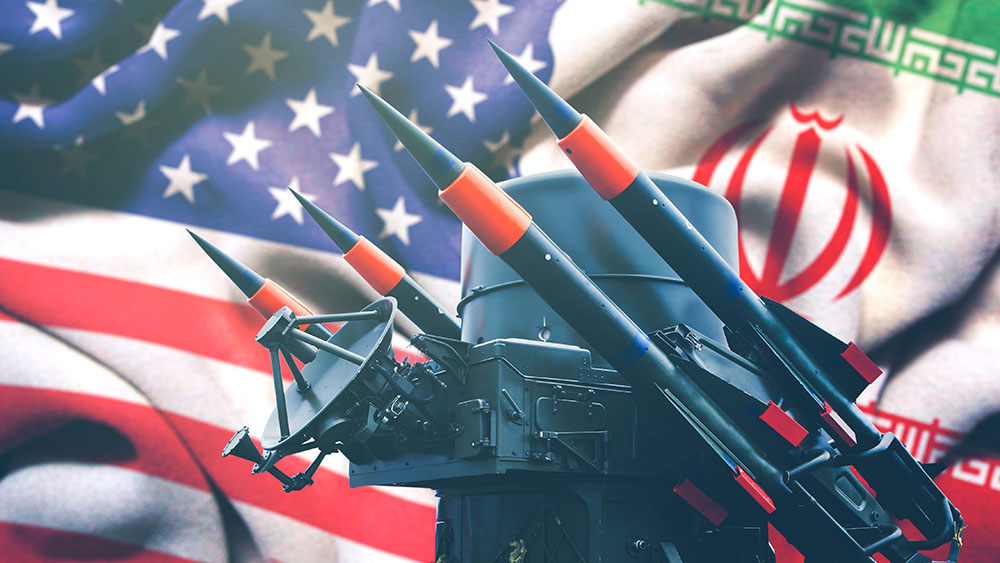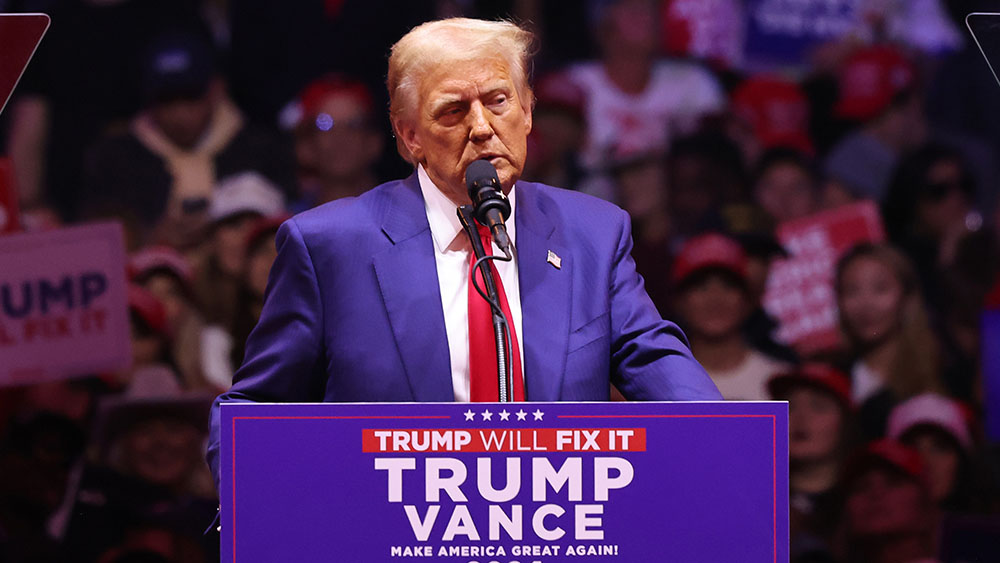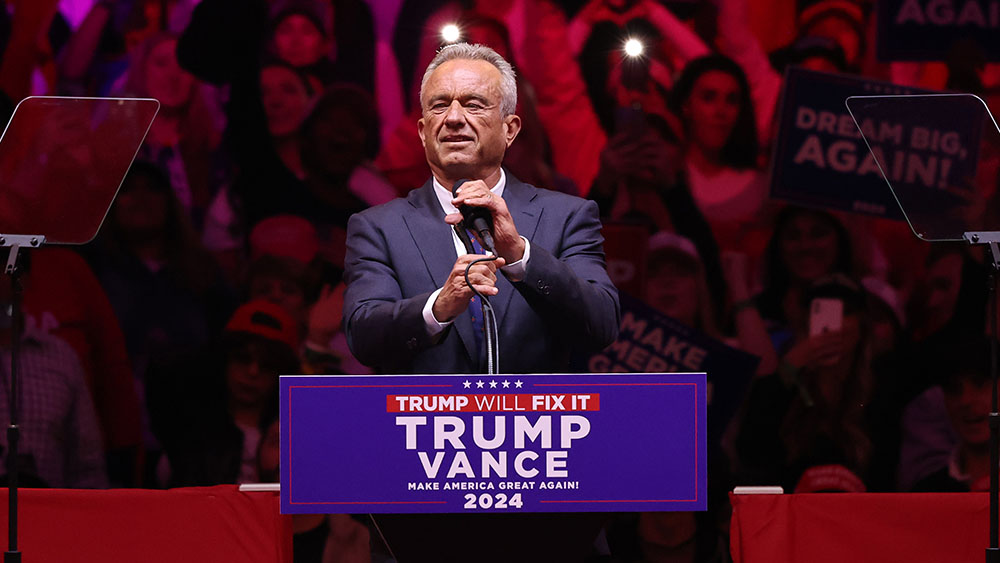U.S. intensifies strikes on Yemen's Houthis, claims Iran "incredibly weakened"
By bellecarter // 2025-04-06
Tweet
Share
Copy

- The White House announced that ongoing U.S. military operations have significantly weakened Iran, with President Trump authorizing renewed strikes on March 15, following over 200 airstrikes by the Pentagon.
- The current campaign, marked by more aggressive airstrikes targeting Houthi leadership and urban strongholds, contrasts with the more limited approach of the Biden administration, which focused on disabling missile sites.
- The conflict, fueled by Iranian arms shipments and Houthi missile attacks on Israel, highlights a deepening proxy war. Despite U.S. airstrikes, the Houthis remain resilient, posing challenges to achieving a quick resolution.
- The lack of formal congressional authorization for the strikes, coupled with revelations of undisclosed war-planning discussions ("Signalgate"), has raised legal and political questions, with critics warning of potential entanglement in another protracted Middle Eastern conflict.
- The U.S. faces a strategic dilemma, balancing the need to curb Iranian influence with the risk of another quagmire. While the White House remains committed to its hardline stance, the prolonged campaign may face increased scrutiny and domestic debate.
A proxy war with no quick resolution
The conflict traces back to 2015, when the U.S. first accused Iran of arming the Houthis – a claim bolstered by intercepted weapons shipments in the Gulf. Despite years of airstrikes, the group remains entrenched, launching at least eight ballistic missiles at Israel in recent weeks and repeatedly targeting U.S. warships. Retired U.S. Navy Vice Adm. Kevin Donegan cautioned against expectations of a swift victory. "Folks that say, 'We'll go in there and take out everyone with the last name Houthi and we'll win.' The Houthi leadership has been taken out in history in the past, and they are resilient," he told AFP. "They came back and they grew stronger. So this isn't something that is a one-and-done." Meanwhile, Iran sustains its proxy campaign at minimal cost, with the Houthis claiming their 16th downed U.S. drone this week – a claim the Pentagon has yet to address. The absence of formal congressional authorization for the strikes has raised legal and political questions, particularly after "Signalgate" revealed undisclosed war-planning discussions. Critics argue the administration risks entangling the U.S. in another protracted Middle Eastern conflict without clear objectives. As the Pentagon operates in what analysts call "Iran's backyard," the Houthis show no signs of retreat. With Red Sea trade routes still vulnerable and bipartisan concern growing over the campaign's scope, the U.S. faces a dilemma: escalate further or seek a negotiated exit. For now, the White House appears committed to its hardline stance – but the longer the strikes continue, the louder the domestic debate will become. The U.S.-Houthi conflict has evolved into a high-stakes test of Washington's ability to curb Iranian influence while avoiding another quagmire. While the Trump administration touts tactical successes, the Houthis' resilience and Iran's low-cost proxy strategy suggest a prolonged struggle ahead. With no congressional mandate and mounting scrutiny over transparency, the strikes may soon face tougher scrutiny – both on the battlefield and at home. Head over to WWIII.news for stories similar to this. Watch the video below that talks about the U.S. military striking Houthis in Yemen. This video is from the NewsClips channel on Brighteon.com.More related stories:
Iran, Russia, China unite against US sanctions, demand end to 'unlawful' coercion in global power play. Russia agrees to mediate U.S.-Iran peace talks amid rising Middle East tensions. Iranian MP urges nuclear weapons development, citing North Korea as model. Sources include: ZeroHedge.com TimesofIsrael.com Brighteon.comTweet
Share
Copy
Tagged Under:
terrorism violence Trump foreign relations airstrikes proxy war White House big government chaos dangerous conflict Yemen WWIII Houthis Signalgate Red Sea shipping routes
You Might Also Like
Elon Musk exposes widespread Social Security fraud: “Someone is going to be arrested”
By Laura Harris // Share
How to detox from metals falling out of the sky
By Laura Harris // Share
Trump warns of harsher tariffs on Canada, EU if they try to harm U.S. economy
By Laura Harris // Share
Trump’s 25% auto tariffs shake industry, but Tesla stands strong
By Laura Harris // Share
Recent News
ICE deports illegal alien from Mexico for the 39TH TIME
By avagrace // Share
Elon Musk exposes widespread Social Security fraud: "Someone is going to be arrested"
By lauraharris // Share
HHS announces new CDC sub-agency focused on vaccine injuries
By lauraharris // Share









